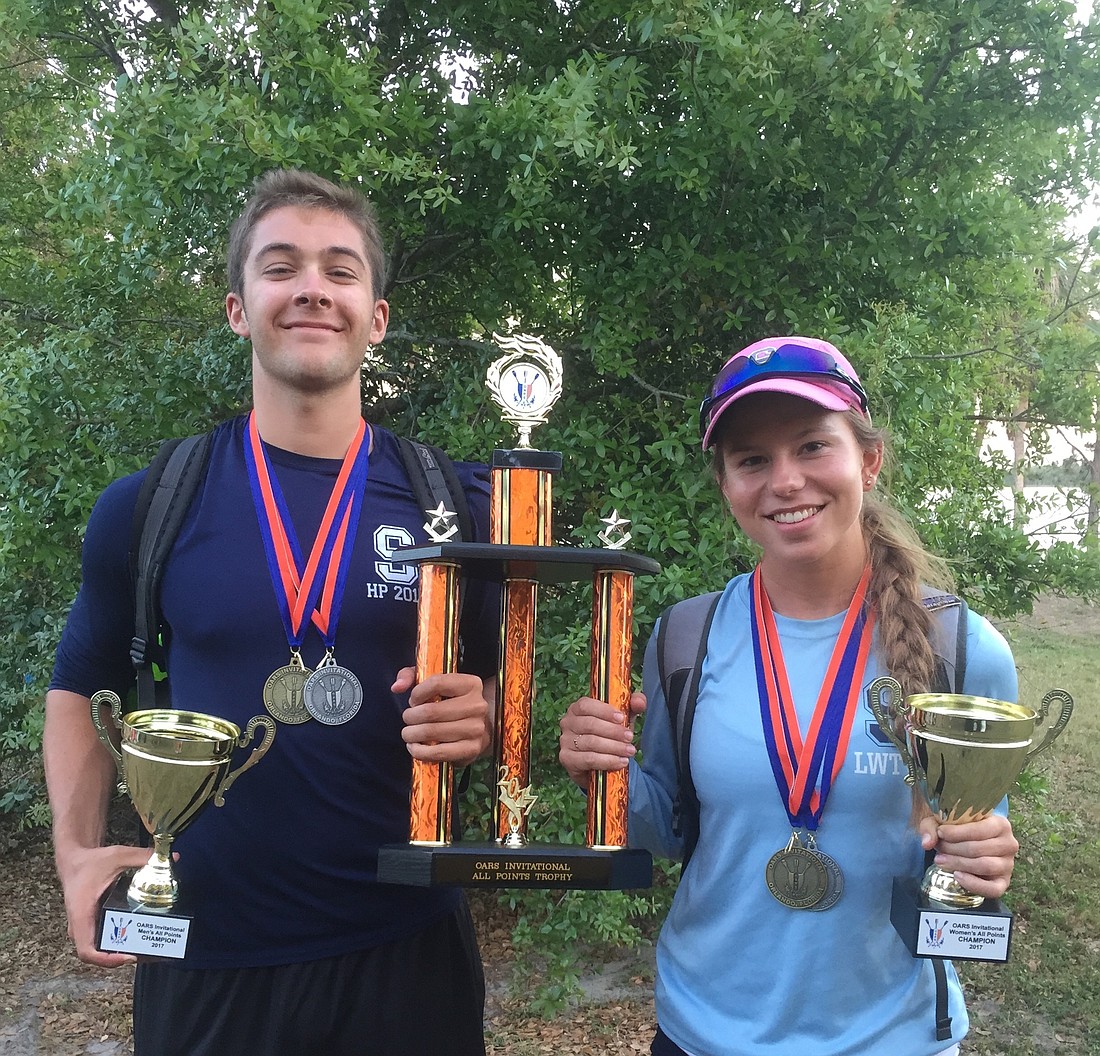- December 28, 2024
-
-
Loading

Loading

If you drew a Venn diagram of youth sports organizations, their determining characteristics would be obvious.
The groups on one side of the circle pair would concede they are all about winning. They don’t necessarily ignore character-building, but they exist to find athletic success on both the individual and team levels.
The other side of the diagram would be home to organizations that emphasize the development of their young athletes as people. These organizations see winning as a secondary goal to making sure their participants are ready for the next phase of their lives, whatever phase that may be.
In the overlapping middle of the diagram, there would be a sliver carved out for those exceptional groups that manage to do both, ending up with strong and responsible leaders who also pack their trophy cases to the brim.
Sarasota Crew is one of those groups. Since I arrived in Sarasota, I’ve kept an eye on the program's success, but I never realized how much it had done until this week, when I received word about the club's five first-place finishes at the OARS Youth Invitational Regatta on March 11 in Orlando and decided to do some research. In 2016, six members of the Crew, plus coach and executive director Casey Galvanek, finished in the top five at the World Rowing Championships in one event or another. They have had top-10 team finishes at the Head of the Charles Regatta, the largest regatta in the United States, five years in a row. There are too many high results from U.S. Youth National Championships over the years to count. To top it all off, the Crew has been Florida's overall team champion six years in a row.
Those accomplishments are fantastic, but Galvanek cares just as much about helping his athletes grow as individuals. Rowing is a sport of deferred gratification, he said. It’s not like baseball or basketball, where teams have a chance to compete and win two to three times a week. It requires more hard work than most outsiders, myself included, realize. Alex Dluzneski, an alumnus who rowed with the Crew from 2011-2015, said that during spring break, the program practiced from 7-9 a.m. and 4-7 p.m. each day. For a high school athlete, that is a ton of time to put into any program, let alone a physically exhausting one such as rowing. There is a point to it all, though, and that is to teach responsibility and instill a work ethic. Those are skills that will stick with athletes long after they put down their oars, and that is exactly what Galvanek wants.
“I always tell kids, winning for the program is different than winning for them,” Galvanek said. “They see winning as getting a gold medal. We see winning as making sure that they are better people, that they are meeting and exceeding their own personal goals, in rowing and in life.”
The Crew’s slogan reflects this attitude. “Empowering Lives. One Rower at a Time.” runs across the top of its website. It’s not just talk. Dluzneski is now a biomedical engineering major at the University of Florida, and he recently talked with Galvanek about all the ways the program helped prepare him for the challenges he would face in college.
Dluzneski is the leader of an a capella singing group called “No Southern Accent.” It’s a lot of work, he said, and he’s borrowed the strict practice schedule the Crew followed to make sure his group gets in every second of work it can. If you’re five minutes early, you’re on time. Otherwise, you’re late.
“The discipline carried over a lot,” Dluzneski said of his time spent rowing. “College was a huge shock compared to high school. It would have been really hard without that base (learned at Crew).”
Dluzneski also said that Sarasota Crew helped him to be confident in goal-setting. The program expects more out of its athletes than they do out of themselves, he said. It helps you to always be shooting for something.
He’s not alone in being helped by the Crew. That discipline and sense of responsibility must really sink into its athletes, because the program had 100 percent of its eligible athletes graduate in 2016, from 27 different schools. 98 percent of those grads were accepted into college.
That’s a wonderful number. Galvanek joked during our talk that kids won’t want to sign up for the program anymore if they found out his job is to work them really hard to transform them into better people, but with the amount of success the program has had on the water, I don’t believe that to be the case.
In fact, it sounds to me like the best of both worlds.